Cameron's EU changes: Will they work in practice?
- Published
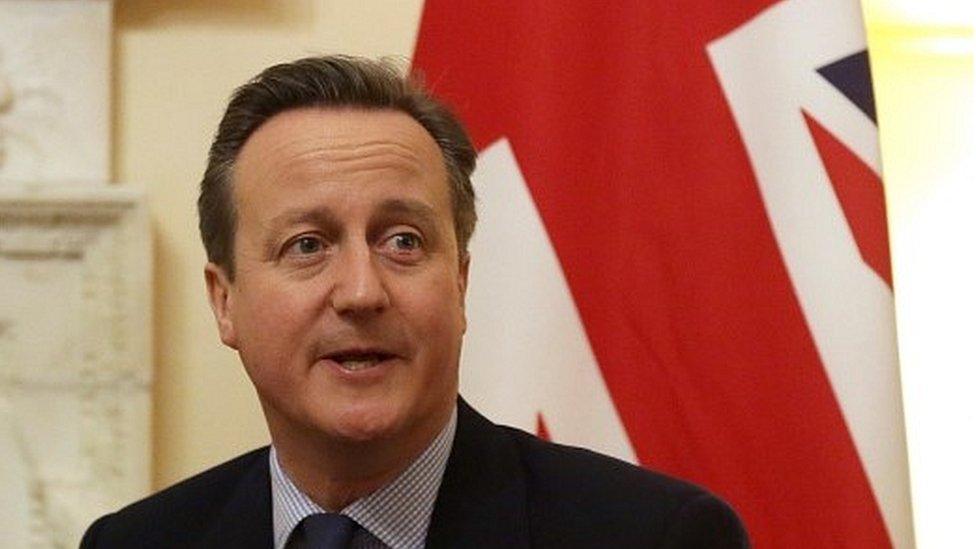
Cutting immigration, curbing benefits and returning powers from Brussels are among the key aims of David Cameron's EU reform deal, but will any of it work in practice?
Will an 'emergency brake' on benefits cut immigration?

David Cameron fought hard to get a four year ban on new arrivals from other EU nations claiming in-work benefits, such as tax credits, which top up low wages.
It will not be a blanket ban, as he had wanted, but will be graduated, so the longer migrants work in the UK, the more benefits they will become entitled to.
The prime minister insists this will "make a difference" to high levels of immigration by reducing one of the main "pull factors" attracting people to the UK.
But there is little direct evidence to suggest it will work.
Sir Stephen Nickell, a senior economist at the Office for Budget Responsibility, said last year he believed it was "unlikely to have a huge impact".
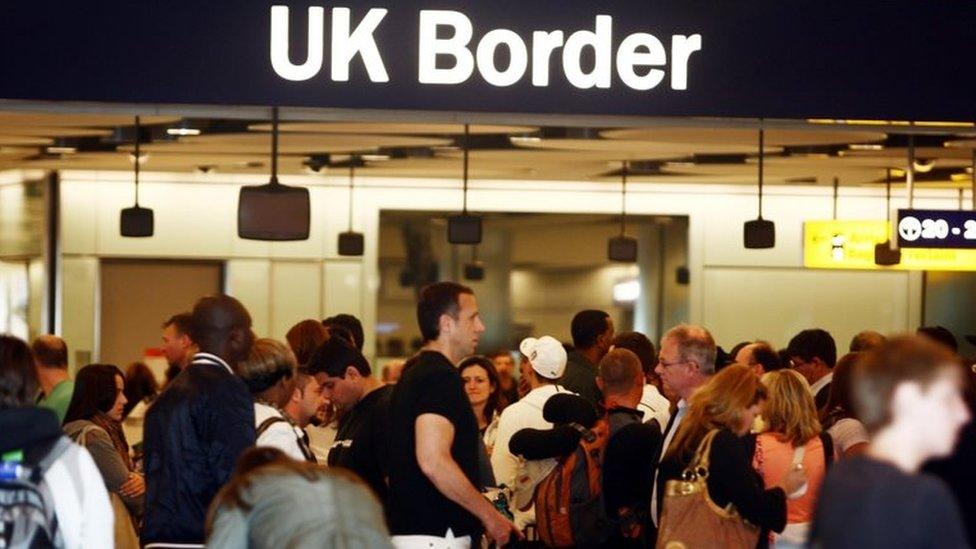
The main "pull factor" for migrants is the availability of jobs, according to Oxford University's Migration Observatory,, external and campaign group Migration Watch.
Benefits might prove to be an attraction to some, but most EU-born migrant workers are single or childless couples who do not claim a lot of tax credits, researchers say.
Migration Watch said Mr Cameron's "emergency brake" on benefits would be "unlikely to have any significant effect on levels of migration".
Some campaigners have suggested that increasing the amount of benefits people can receive each year will encourage them to remain in Britain.
The in-work benefit ban was dreamed up by influential think tank Open Europe (its former boss Mats Persson is now Mr Cameron's chief adviser on EU reform).
It argued in a November 2014 paper,, external that banning in-work benefits would mean take-home pay could drop below that which migrants would receive in their home states - they used Poland, Bulgaria and Spain as their examples - meaning that a move to the UK would no longer make financial sense.
But the UK's plan to increase its minimum wage to £9 an hour for over-25s by 2020, which the government claims will remove the need to top-up wages with benefits, could undermine that argument.
Also, it is not clear how checks would be made on how long people have actually been in the UK. Some regularly travel in and out of the UK or return to their home country to see family for a few months at a time.
Asked whether Mr Cameron believed the proposed 'emergency brake' will cut immigration, a Downing Street spokesman said that migrant families were currently able to claim an average of £6,000 a year in tax credits and some 10,000 were claiming £10,000 or more.
Are the child benefit restrictions workable?

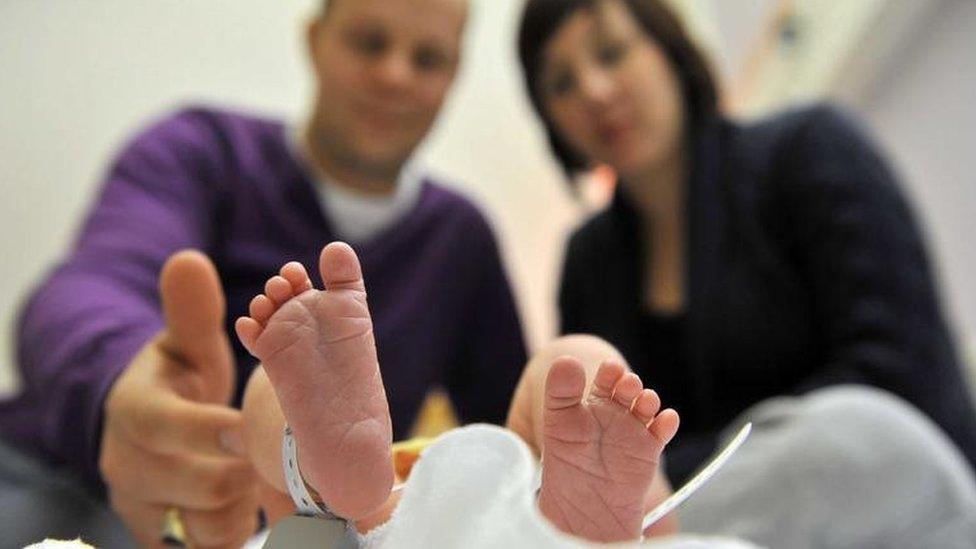
The UK spends about £30m a year on child benefit payments for children that do not live in the UK.
About 20,000 EU nationals receive the payment in respect of 34,000 children in their country of origin.
A majority of those payments go to children resident in Poland, but several thousand Irish and French citizens resident in the UK also receive UK child benefit payments for children residing elsewhere.
David Cameron wanted to change EU rules to end this, but instead he has been offered a deal under which child benefit will be paid in line with the wages in the country where the child is living.
UK child benefit is £20.40 a week for the first child, about 5% of the average income. Under the proposed new rules, that might be reduced to £3.50 for a child living in Romania, where wages are low.
But it might also mean the UK will pay higher levels of child benefit for than it currently does for children living in countries with higher average wages.
There are also concerns that the Department for Work and Pensions will struggle to cope with calculating 28 different rates of child benefit, for each member state.
Officials have also told the BBC they are unsure how they can be certain where the children of migrants are resident.
Sovereignty and returning powers from Brussels

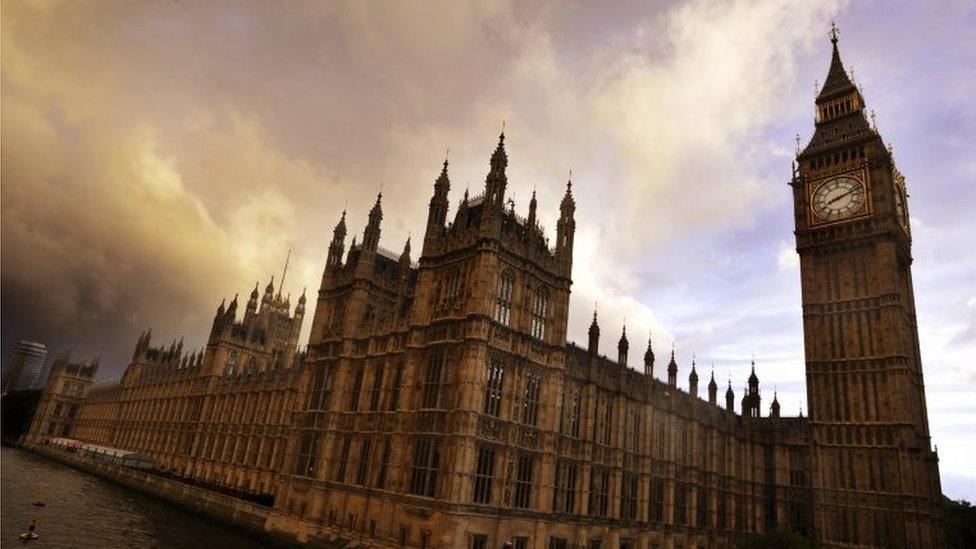
David Cameron secured a clear legal statement that the UK was not committed to further political integration and that the phrase "ever closer union" cannot be used to integrate the EU further. But it is not yet clear when or how this will be incorporated into the EU treaties.
He also got new powers for national parliaments to band together to block unwanted EU laws - but the thresholds are pretty high before those powers can be used.
The "red card" procedure can only be triggered if at least 15 national Parliaments, representing 55% of the EU's population, agree.
London Mayor Boris Johnson has said it would be better if the UK was able to block EU laws on its own without having to rely on the support of other EU nations.
In response to Mr Johnson's concerns, Mr Cameron revealed on Wednesday that he is planning to announced a measure that will put the sovereignty of the Westminster Parliament "beyond doubt".
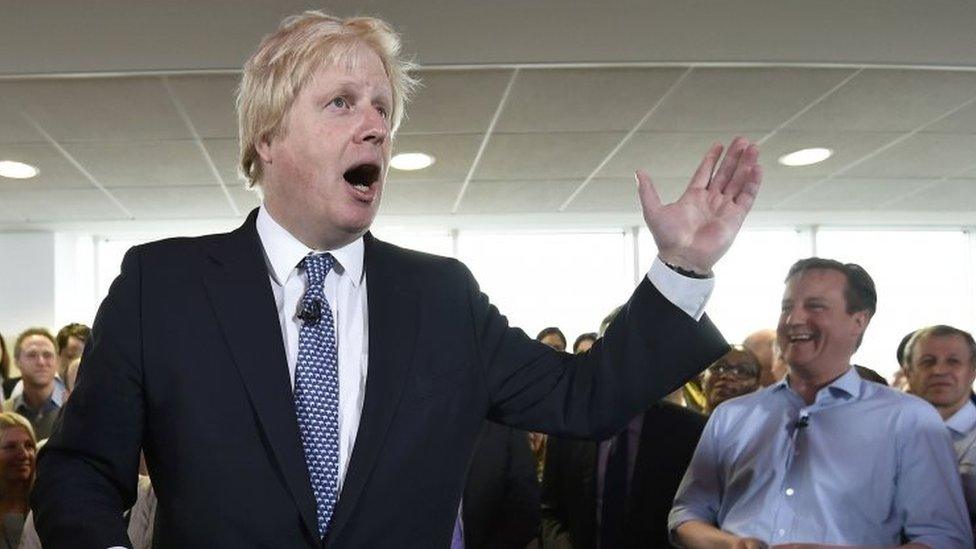
Eurosceptic Tory MPs are pushing for a repeal or amendment of the European Communities Act 1972 to assert that UK law has primacy over EU law. But critics say this would be tantamount to leaving the EU.
Instead, the government is looking at ways of asserting parliamentary sovereignty that would question and challenge EU decisions but without causing constitutional chaos.
There is speculation Mr Cameron will make some kind of unilateral declaration of sovereignty, at the same time as he concludes his negotiations over Britain's reformed relationship with the EU.
And that he will use this to persuade Boris Johnson to vote to remain in the EU since this is an issue on which the mayor has campaigned for many months.
Downing Street is refusing to give details of the proposals which are being worked on by the Cabinet Office and the Ministry of Justice.
But Mr Cameron gave a hint last year in his November 10 Chatham House speech when he said ministers were looking at the way Germany used its constitutional court to test EU law.
He said then: "The Constitutional Court in Germany retains the right to review whether essential constitutional freedoms are respected when powers are transferred to Europe. And it also reserves the right to review legal acts by European institutions and courts to check that they remain within the scope of the EU's powers, or whether they have overstepped the mark. We will consider how this could be done in the UK."